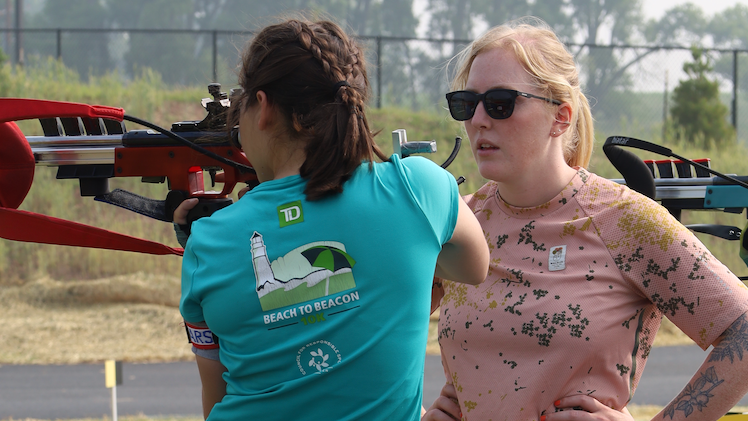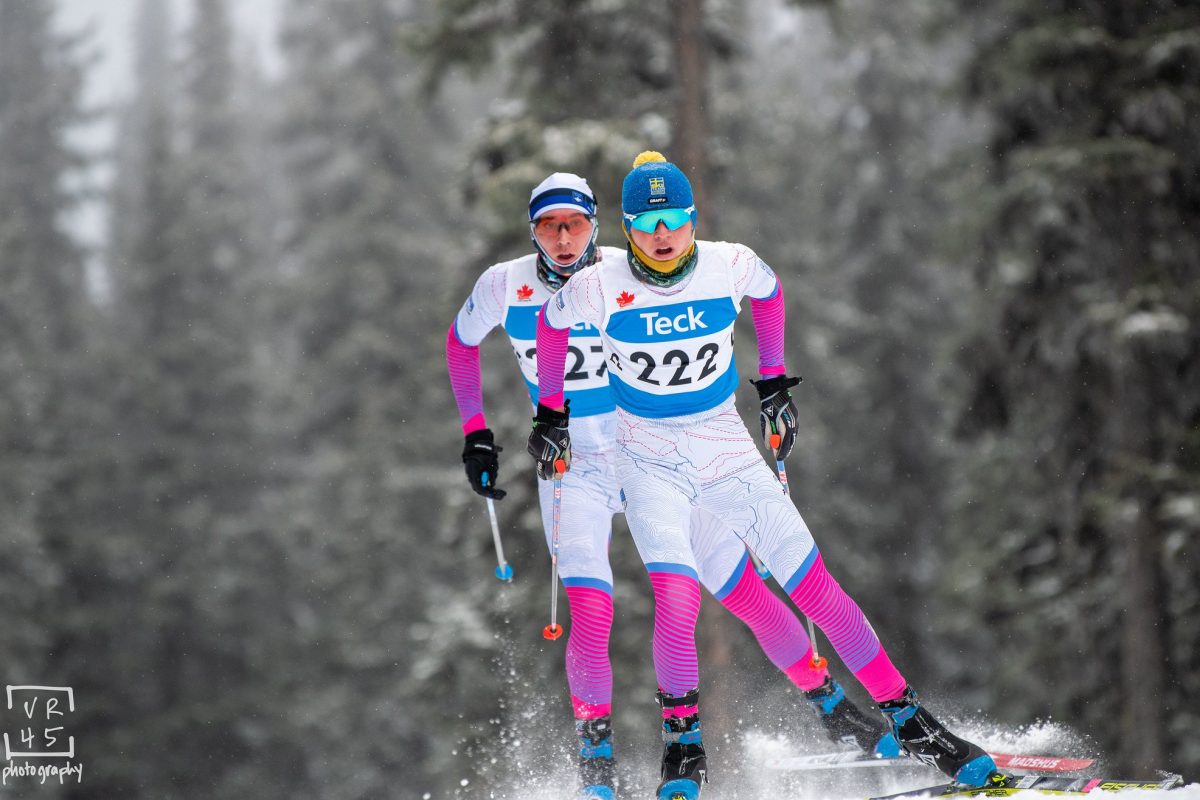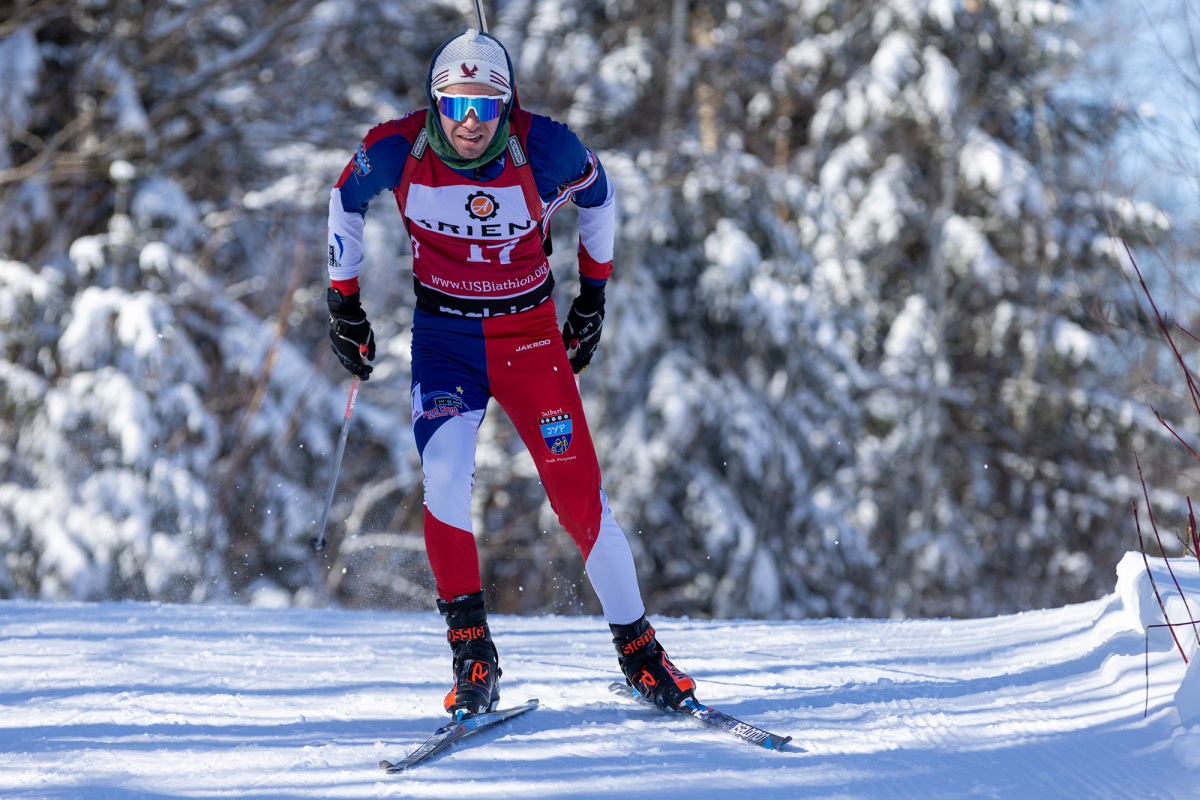
In case there was any doubt: the King still reigns.
Ole Einar Bjørndalen of Norway had stood on the podium just once this season, and hadn’t won a World Cup race since December 2010. But on Sunday in Kontiolahti, Finland, the legend upped his tally of victories to 93 – a number that seems impossible for another athlete to ever match.
At 38 years old, Bjørndalen also became the oldest athlete to ever win a World Cup race. The man he beat, Martin Fourcade, seemed impressed more than anything else.
“I am proud to be second today to the King of Biathlon,” he said in a press conference.
The Norwegian’s landmark victory came in a 12.5 k pursuit race every bit as exciting as he had hoped for. Bjørndalen said in an interview earlier this year that nordic skiing is “terribly boring” and “can’t even compare to biathlon,” and on Sunday he was proven right; 20 men started within a minute of sprint winner Fourcade, and the top ten were all within 20 seconds. The veteran himself was never a contender for the win until the very end.
At the start, Fourcade was shadowed by Russia’s Timofey Lapshin and Switzerland’s Benjamin Weger. Bjørndalen and U.S. biathlete Lowell Bailey were close behind.
Of the leaders, only Fourcade and Weger cleaned the first stage, and the two spent a loop skiing together, jockeying for position through the course’s windy downhills. The pair each missed a shot in the second prone stage, opening the door for Norway’s Emil Hegle Svendsen to take a three-second lead; Fourcade quickly caught him, and spent the next loop skiing with the Norwegian.
Fourcade and Svendsen, who have been trading the yellow World Cup leader’s bib back and forth, spent a total of five kilometers racing together, including the initial standing stage, which they both cleaned. It wasn’t until that stage that Bjørndalen appeared in podium position, 30 seconds behind the pair.
When they reached the final shooting stage, both racers experienced uncharacteristic implosions, with the crowd gasping as Fourcade missed two shots and Svendsen three.
“It was the last shoot before World Championships, and Emil had the red bib and I had yellow, and I think it was a lot of pressure,” Fourcade said after the race. “We were not so good on this shoot, but it was still okay for me.”

Suddenly, as the leaders skied lap after lap of the penalty loop, there was room for another competitor at the top. Bjørndalen skied into the range, set up, and hit his first four shots.
But even then, the race wasn’t over. The crowd fell silent again as Bjørndalen took his rifle down from its secure mount against his shoulder and tried frantically to brush out a jammed bullet. Once he had done so, he raised his rifle once more and knocked down the final shot, but the delay had cost him. As he left the range, his lead on Fourcade – one of the most fearsome skiers on the circuit, behind perhaps only Svendsen – was just 11 seconds.
Was he afraid?
“Yes, for sure,” Bjørndalen said in the press conference.
But having 92 World Cup victories under his belt has made the veteran a wily competitor.
“I know Martin is really strong on the last loop, so I tried to go fast on the first uphill,” Bjørndalen explained. “[Then] I saw that he hadn’t caught me by the top. I was feeling really strong so I was good for the last uphill.”
Fans have never doubted Bjørndalen’s abilities, but to see him hop-skate up the staggering hills of Kontiolahti, staying dead even with Fourcade, who looked more and more exhausted – it was impressive.
“It was delicious,” the veteran said of his victory.
“I like my sport and I like training hard, and I will never give up… It was a bad season last year and a bad summer, but now I hope that I am back again.”
The next series of competitions will be World Championships in Ruhpolding, Germany, where Bjørndalen will try to add to his collection of 35 previous medals.
“For the World Championship I think what’s most important for me is that now I know that everything is possible,” the Norwegian concluded.
* * *

What started out as a promising day for the U.S. team ended in disappointment, although the racers were quick to point out that their results weren’t exactly bad.
Bailey and Russell Currier started the race in fifth and sixth positions, but both men, along with bib 13 Tim Burke, made errors in the first prone stage. Bailey was able to overcome his mistakes and spend about five kilometers skiing in the top ten, while Burke eventually moved up as high as fifth.
The success didn’t last, however, and all four American men racked up multiple penalties on the final stage. Burke missed three shots to drop from fifth to 13th, then Jay Hakkinen missed two to fall from the top ten to 13th and Bailey matched that, but maintained his 12th-place position from the previous stage. Finally, Currier also missed two shots and dropped out of the top 20 for the first time all day.
“I think all of us are a bit upset about the last stage, but that gives us something to chew on while we prep for the World Championships,” Hakkinen told FasterSkier after the race.
Despite the late errors, the team was able to salvage respectable results, with Burke, Bailey and Hakkinen crossing the line in 11th, 12th, and 14th; Currier ended up 23rd.
“It’s funny how expectations can change so fast,” Burke said of the results. “Today’s race went okay but of course we were all hoping for more after such a great day yesterday. Last year we would have been thrilled to have three guys in the top 15 but today we were definitely a little disappointed. Our coaches help us keep that in perspective but of course we are all anxious to crack the podium!”
Burke, like Svendsen and Fourcade, was tired after a long weekend in cold conditions. And unlike those stars, he and Hakkinen had raced the mixed relay on Friday, adding to their fatigue.

“Personally, I felt really drained out there today after racing the previous two days,” Burke said. “I made it all the way up to fifth but struggled in the last stage. No excuses though, I had an opportunity to go for the podium but was not able to pull it together. The shooting conditions were definitely pretty tricky today and it looked like most athletes spent some time in the penalty loop.”
Bailey said that perhaps starting so close to the front had affected his performance, an error he hoped to correct in the future.
“I was pretty bummed with the shooting,” he said. “I knew I had a good chance at a top result today and I think perhaps that got in the way of actually just doing a quality race.”
Hakkinen said that he was pleased to have made it back into the top 15 for the first time since December, although he was “was surprised it took so much work to move up two spots” from his starting position of 16th.
“I knew the key to the race would be good controlled shooting, and I was able to execute that strategy well – except when I missed of course,” said Hakkinen, whose two errors in the final stage were the only penalties he picked up all day.
Despite the bad taste left from those errors, Hakkinen, like Burke, was pleased with the team’s performance and inspired by the knowledge of what they could accomplish.
“Our team really showed a new level at this World Cup, especially being able to consistently get top results, and that is very motivating looking toward the rest of the season,” he said.
Bailey agreed.
“I think all of us hoped for more today… I really thought that one of us would be on the podium!” he told FasterSkier. “But this is a tough sport and that is easy to forget sometimes. However, we are all happy with the team performance and we’ll use this momentum as we move towards World Championships.”




One comment
davord
February 12, 2012 at 6:48 pm
Who finished 3rd?